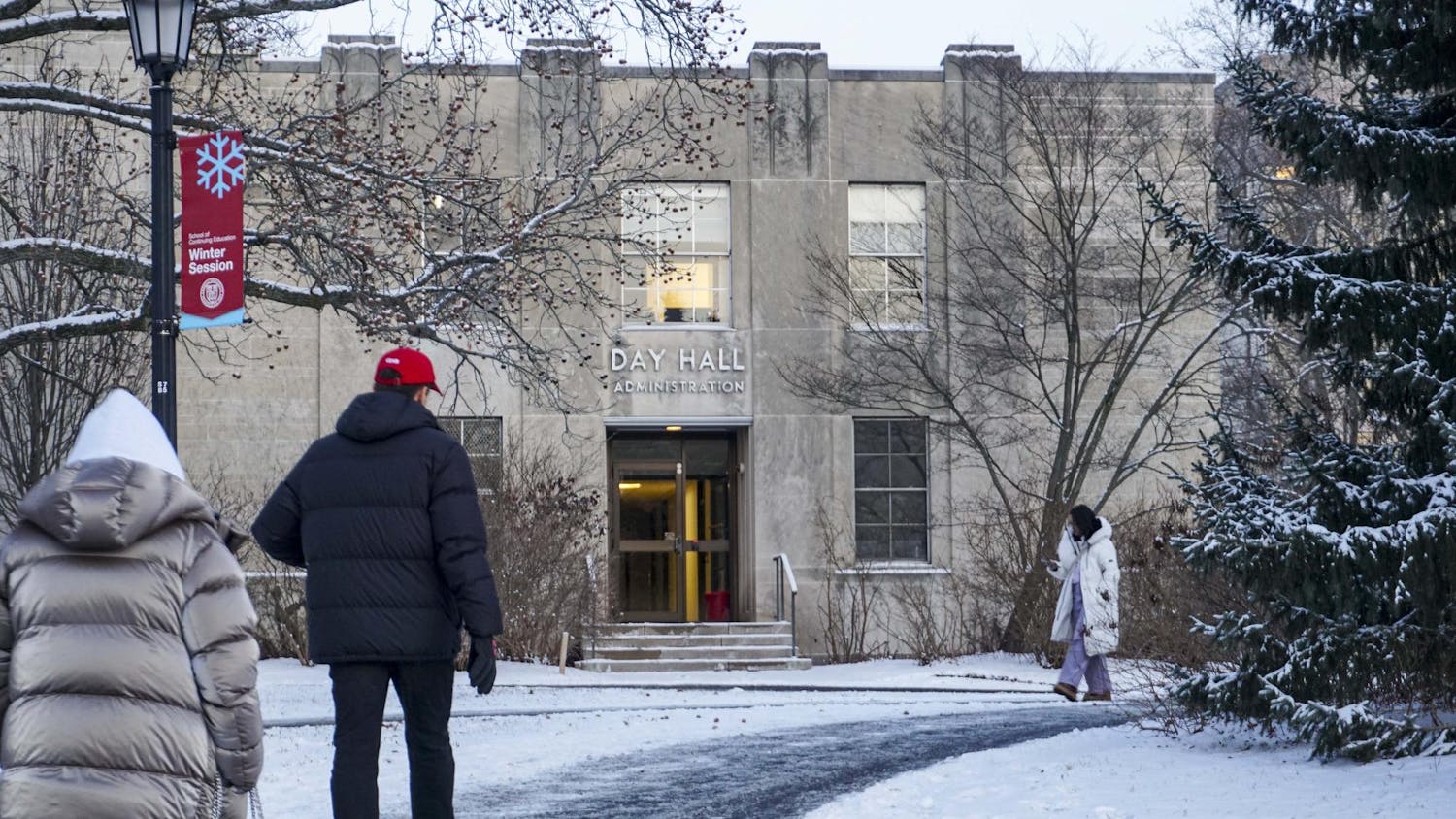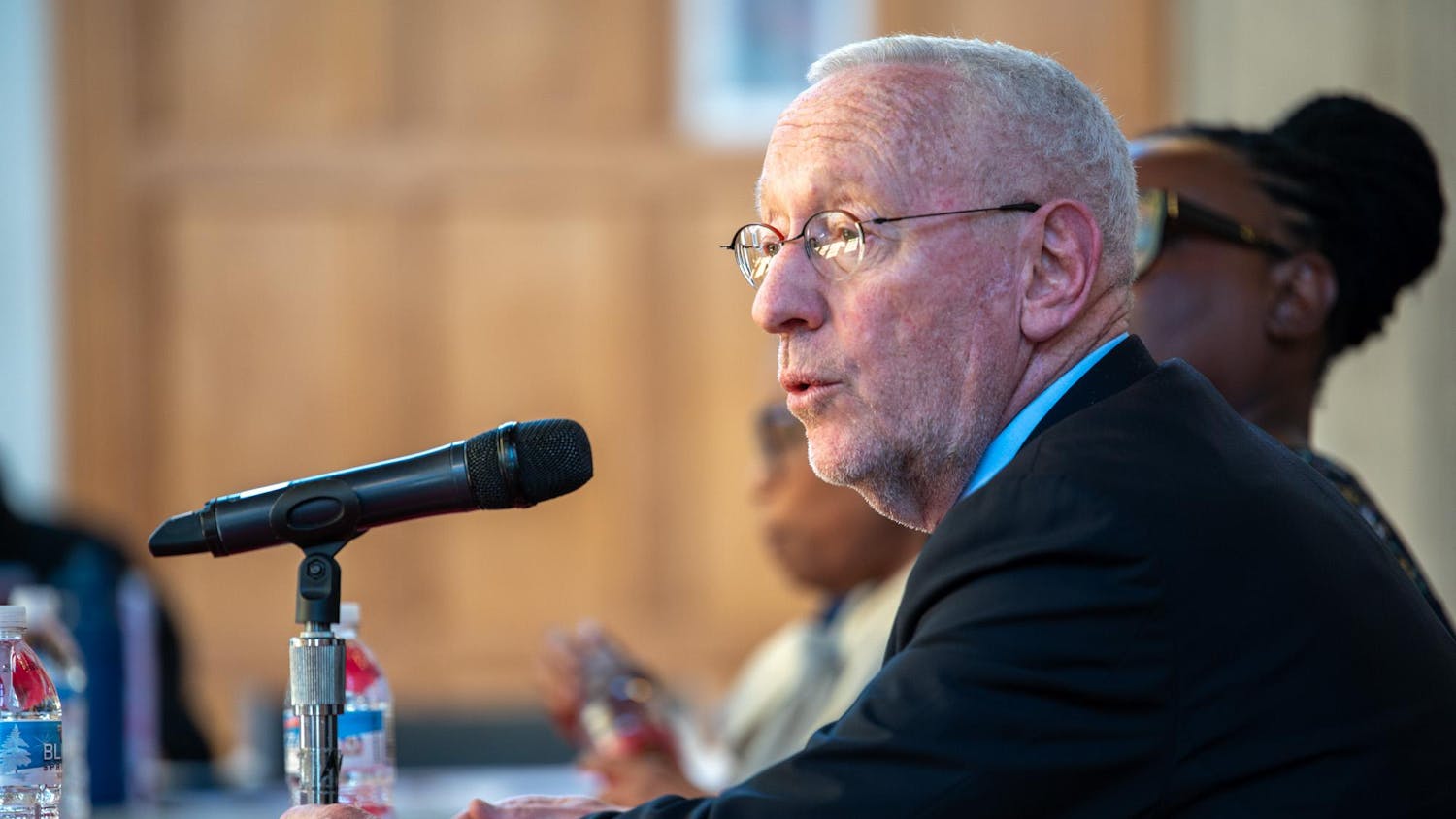Update: Vice President for Student and Campus Life Ryan Lombardi agreed to meet with R.A. organizers as soon as possible in an email provided to The Sun by a University spokesperson. This story has been updated accordingly. Fed up with unsafe working conditions and what they call a lack of concern from Cornell officials, North and South Campus resident advisers went on strike and announced a list of demands — including hazard pay — less than a week before thousands of students are set to move in. As RAs prepare to welcome thousands of new and returning Cornellians to campus, they are juggling their own health, ever-evolving University procedures and the needs of their residents. This semester, even everyday RA tasks — like helping a first-year who locked themself out of their room — will require extra planning and comes with extra risk. Some RAs say they’ve already struggled due to staffing shortages, insufficient protective equipment and lack of guidance from Cornell. One said he and his colleagues are “making up the policy ourselves as we go.” In response, more than 50 RAs are skipping virtual training meetings Wednesday. They will also not participate in staff meetings or training and coordinating work until staff from Housing and Residential Life sits down with their spokespeople to discuss the demands. In a response to the RAs on Wednesday, Vice President for Student and Campus Life Ryan Lombardi agreed to meet with the organizers“as soon as possible.” If Housing and Residential Life doesn’t meet the demands, the RAs who signed on told administrators that they “will refuse to be on-call, boycott weekly staff meetings, and avoid communication with superiors.” “Please consider taking a stand with us,” read an email from organizers to R.A.s obtained by The Sun. “We cannot allow Cornell to take advantage of their front line, especially now when lives are at stake.” Instagram and Twitter accounts listing their demands used the hashtag #GiveUsEmpathy. A Wednesday email to their bosses said the RAs who signed on “will refuse to be on-call, boycott weekly staff meetings, and avoid communication with superiors until our spokespersons are contacted and our demands are met.” They told University officials that they plan to “abstain from online training and engaging with our supervisors” until Aug. 22. If they haven’t “received good faith communications from administration by that time,” they’ll begin an “on-call strike.” Read the full Aug. 19 email and Aug. 18 message sent to R.A.s detailing demands here.
The coronavirus pandemic continues to impact the hundreds of workers in Ithaca and at Cornell who are responsible for keeping campus clean and students fed. And RAs — many of whom rely on their positions for housing and food — live where they work, among hundreds of undergrads and at extensive exposure risk. Their list of demands includes a mix of safety measures, representation in decision-making processes and hazard pay. The live-in student advisers also want more protective equipment, and cost-of-living raises that take additional workload into account. When RAs will be expected to shoulder more responsibilities because of COVID-19 changes, they want administrators to notify them first before they address the larger campus community. To make sure their interests are better represented in the future, they are asking for an RA representative present at Housing and Residential Life meetings and a professional staff liaison. The organizers specifically call out the Housing and Residential Life department — and not residence hall directors and area coordinators, who they thanked for advocating for RAs. “RAs are integral to this reopening plan,” the strike organizers posted on social media. “We need PPE, we need sanitation, we need our concerns to be heard, we need not be overburdened, we need consistency, we need communication. We need empathy, then you can ask for grace.” One of the organizers’ demands is that residence hall directors, area coordinators and other professional supervisory staff retain their jobs and not be overworked during the strike. The RAs reserved their frustration specifically for Housing and Residence Life director Timothy Blair, Lombardi and Assistant Vice President for Student and Campus Life Pat Wynn. They accused the three of “exploiting and blackmailing marginalized students with the false concept of free housing.” Since many RAs need their jobs in order to have housing at Cornell, they feel they are forced to accept tough conditions. "Please know how much I appreciate your work, and care deeply about providing an experience that is rewarding and safe," Lombardi wrote on Wednesday. "This fall has presented Cornell with unprecedented challenges and it is critically important that all who play a role in reopening our campus to feel they have the information and support to safely perform their jobs." Lombardi added that staff should have received welcome packets with extra masks and that extra masks are available, that residence hall bathrooms and surfaces are being disinfected regularly and that an estimated 4,500 to 5,000 students — not 7,000 — will live on campus. A senior R.A. on South Campus said Blair ended an Aug. 13 meeting for RAs about preparing for the fall semester early, “seemingly out of frustration” and that RAs haven’t since had the ability to ask questions anonymously. They said Blair “seemed apprehensive” to give helpful answers during the meeting. “Since that time, the option to ask questions anonymously has been taken from us, robbing us of a way to safely ask vital questions without fear of retaliation from leadership,” the RA wrote in an email to The Sun. Health risks are compounded by the behavior of some residents, according to Diego Galvan ’23, an RA in Donlon Hall on North Campus. Galvan said he has seen multiple maskless students around campus and has dealt with vandalized safety signs in Donlon. “We had someone who drew all over COVID-19 safety rule posters, writing ‘lame, lamer, lamest’ on differing posters,” Galvan said. “We can’t control what residents are thinking, and we already have people from hotspot states not following rules.” On top of responsibilities that include de-escalating students in psychological crisis, assisting sexual assault survivors and reporting campus code of conduct violations, RAs are now on the frontlines of making sure students are adhering to public health guidelines.[THREAD] Our demands for Fall 2020 #GiveUsEmpathypic.twitter.com/q1z6zNDVIn
— Cornell RA's (@cornell_ra) August 19, 2020
International students and students from states on New York’s restricted travel list who were given special permission to complete their 14-day quarantine on campus moved in on Monday. Between 4,000 and 5,000 students will arrive on campus next week, less than the initially estimated 6,400, Lombardi said in a Tuesday town hall. According to Cornell’s move-in plan, the students will get tested, spend 24 hours in a residence hall or at a hotel awaiting results and, if they test negative, move into their dorms. ‘I don’t see how this will last a semester’ Jason Chang grad, a member of the West Campus residential staff, said in a message posted on social media on Tuesday by another graduate student that he and his colleagues are “making up the policy ourselves as we go” because of the lack of coordination by Cornell. Residential staff, according to Chang, initially had to assign bathrooms and make signs without guidance from the University. Meanwhile, students struggled to understand the procedures for picking up food. Many residential staff complained that meals provided to staff weren’t large enough, leaving them hungry. Breakfast was “a mini muffin and an unripe orange,” and some staff have combined two or three meals into one, according to the email posted online with information from Chang. [gallery size="medium" columns="1" ids="7284701,7284700,7284699"] In addition to getting the standard student welcome kit with two face masks, a thermometer and hand sanitizer, Chang and his colleagues in Keeton House received a box of surgical masks, a box of gloves and a few face shields. Chang said he purchased $300 worth of his own PPE, including KN-95 masks, a face shield and Clorox wipes, in case the provided PPE runs out and isn’t resupplied in time. While insufficient, the PPE Chang and his colleagues received is still more than what RAs on North Campus received. Galvan received three face masks, a digital thermometer and a small bottle of hand sanitizer. A North Campus RA, who asked to be anonymous out of concern for the possibility of backlash from supervisors, said they only received one mask and a bottle of hand sanitizer. Safety concerns have been exacerbated by the lack of staffing and PPE, according to the North Campus RA, who said staff in their building are taking on additional on-call shifts and as many as 30 to 50 additional residents without any overtime or hazard pay. Chang said many students who were originally going to be resident advisers have quit, resulting in significant turnover. The senior South Campus RA said they estimate that of the 130 RA positions on North and South, 24 are vacant. “The HRL office has done little to support returning staff and begin hiring new people to replace those who decided not to return,” the North Campus RA wrote. “We are still being asked to respond to parties and conflicts in residence halls without being provided PPE.” Galvan said he is particularly frustrated that RAs haven’t received more pay to compensate for the increased work at greater risk. “The worst part of being understaffed is there is no compensation whatsoever for the additional work and the additional risk. When you are the RA on call, you have to respond to any emergency,” Galvan said. “Because we are the first line of response for student emergencies and are working even longer hours, our risk of potential risk of COVID-19 is even higher.” While Chang said that RAs are not technically supposed to enforce the behavioral compact, he doesn’t see any other option. Chang doesn’t think the central administration-based response to handle violations will respond quickly enough to prevent COVID-19 spread, and is unsure what the reporting process will be. “If you ask people in residential life [what] reporting processes for violations [are], we don’t know,” Chang said. “It is a very tough situation as a staff member because, you know, fear of retaliation is a thing.” Galvan is concerned that rule enforcement and emergency response work will be even riskier because of the staffing shortage. If one floor of a dorm is missing an RA, the shortage affects the whole building, Galvan said. “We have to work even longer shifts to cover,” he said. “I don’t see how this will last a semester.”It’s 10:50 PM on the first major day of @Cornell students moving back on campus. I’m wearing PPE that I bought to protect myself while putting up more signage for residents that are already violating quarantine and the behavioral compact.
I’m tired. My fellow staff are tired. pic.twitter.com/L84CY0cwpg — Jason “ACAB” Marvin (he/him) ?️?????♂️? (@JasonCMarvin) August 18, 2020











